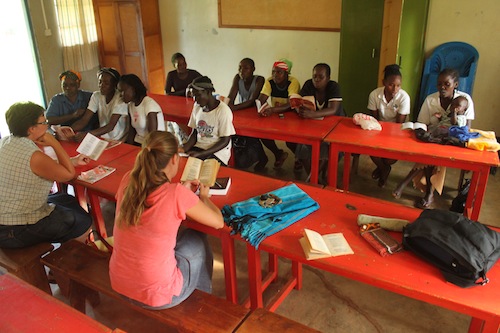One major change motor is an African woman: according to studies and real-life experiences, helping women is one of the best ways to support whole families and reduce poverty at grass-roots: ‘Educated mothers, healthy children’. Therefore, the role of educated women is crucial in achieving healthy village communities. Because the increasing number of poor households are headed or maintained by women, a focus on poor women is therefore essential for poverty reduction. Similarly, investments on girls, which help them to complete good quality secondary education and to support their transition from education to work, will improve the livelihood opportunities of these girls. Meda Wagtole, a schoolgirl in Ethiopia (http://www.ungei.org/resources/index_560.html) stated: ‘To be educated means… I will not only be able to help myself, but also my family, my country, my people.’ The education of girls and women powerfully decreases diseases and helps to make communities and societies healthier, wealthier and safer. To eliminate malnutrition in the long term, education – especially education that empowers women – is vital.

Photo: David Stenlund. SLEF
We have conducted the TAMAA Case study, which provides you more about education, other basic needs, community empowerment and development, Available: http://urn.fi/URN:ISBN:978-952-60-3714-1
